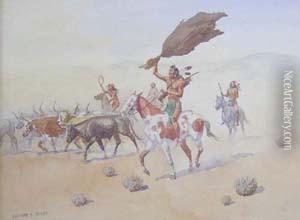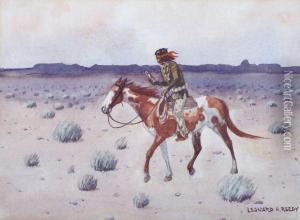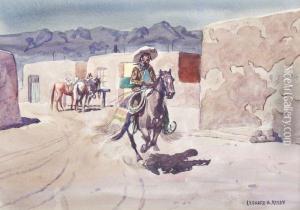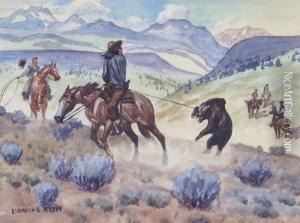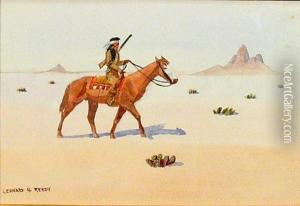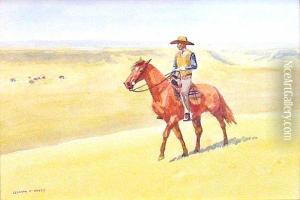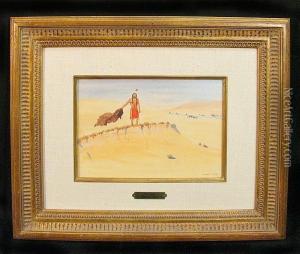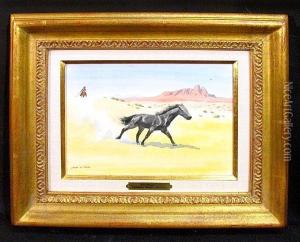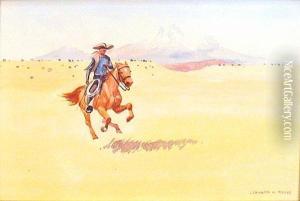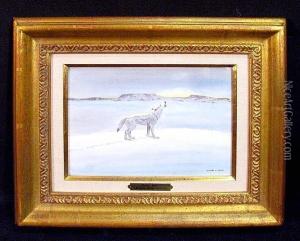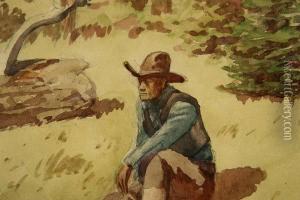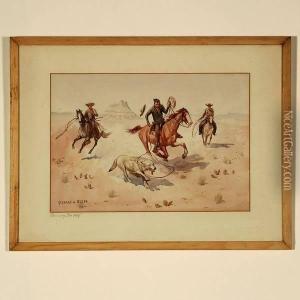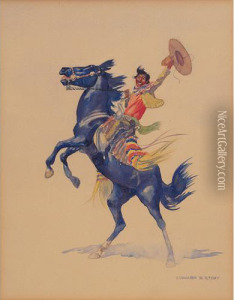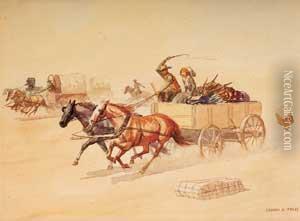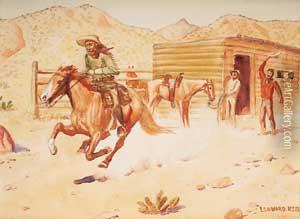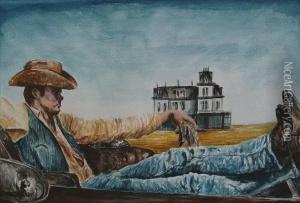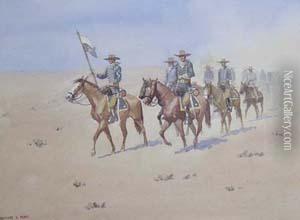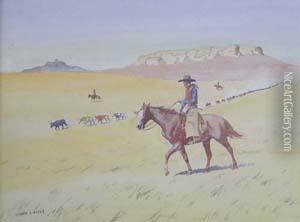Leonard Howard Reedy Paintings
Leonard Howard Reedy was an American artist known for his distinctive style of Western-themed watercolor paintings. Born on August 17, 1899, in Chicago, Illinois, Reedy grew up in a time when the American West was a subject of fascination and romanticism. Despite living in an urban environment, he developed a profound interest in the Western American lifestyle, which would become the central theme of his artistic career.
Reedy's artistic talent became apparent early on, and he honed his skills at the Chicago Academy of Fine Arts. Unlike many of his contemporaries who sought to capture the West through grandiose scenes and idealized imagery, Reedy focused on the more gritty and realistic aspects of Western life. His subjects often included cowboys, Native Americans, animals, and the harsh yet beautiful landscapes of the American frontier.
During the 1920s and 1930s, Reedy's work gained popularity, and he became known for his small-scale watercolors, which were rich in detail and characterized by a deft use of color and dynamic composition. His work was appreciated for its authenticity and for capturing the spirit of an era that was quickly vanishing as the 20th century progressed.
Reedy's career was also shaped by the economic realities of the Great Depression. He worked on various art projects, including creating murals for the Works Progress Administration (WPA) to support himself during these difficult times. Despite the challenges, Reedy continued to produce a prolific body of work, and his pieces were exhibited in numerous galleries and became part of private and public collections.
Leonard Howard Reedy's life and career were relatively brief, as he passed away on September 27, 1956, in Chicago. Today, his work is regarded as an important contribution to American art, particularly in the genre of Western art. His paintings are a testament to his passion for the American West and provide a window into the lives and landscapes that defined this iconic period of American history.
